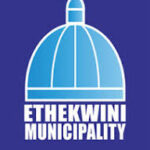Durban, South Africa
Learn more about Durban's food system below
City overview
The eThekwini Municipality, established in 2000, includes the city of Durban and its surrounding towns along South Africa’s east coast in KwaZulu-Natal. Covering 2,291 km², it is the country’s third-largest metropolitan municipality, home to approximately 4 million residents distributed across 110 wards, 68% of which are peri-urban and historically underdeveloped. The city has a diversified economy with strengths in manufacturing, logistics, finance, real estate, tourism, and the arts. The municipal council comprises 222 members elected through a mixed-member proportional representation system. In the 2021 local elections, the African National Congress lost its long-held majority, marking a significant political shift. The city faces challenges, including a 22.5% unemployment rate and an economic growth rate of just 0.5%, below the global average of 2.8%.
Status of food and nutrition security
Food and nutrition security in eThekwini Municipality is a significant concern. In 2016, about 13.3% of households reported running out of money for food. While the municipality is generally food secure, vulnerabilities surfaced during the COVID-19 pandemic thus disrupting supply chains and agricultural production. Key challenges include high unemployment, decreasing agricultural land, and socio-economic barriers that limit food access. Despite efforts to improve infrastructure, many residents remain in poverty. The municipality aims to be the most livable city by 2030, addressing socio-economic and environmental challenges through food policies aligned with Sustainable Development Goals (SDGs 1, 2, and 3). Urban food insecurity is rising, with severe food insecurity increasing from 18% to 19.3% from 2014 to 2020. The city supports community gardens and initiatives like “One House One Garden,” but further investment and policy development are vital. The upcoming Food and Nutrition Policy, set for 2024, aims to strengthen local food systems and resilience.
Food systems policies and programmes
eThekwini Municipality is committed to enhancing food systems as a signatory of the Milan Urban Food Policy Pact (MUFPP). This initiative aims to promote sustainable and equitable food systems, ensuring that all residents have access to sufficient and nutritious food.
The municipality supports sustainable agriculture through urban farming and community gardens, benefiting approximately 55,500 households via the “One Home, One Garden” initiative. Key infrastructure support includes fencing, irrigation systems, and water tanks for these gardens, particularly for Early Childhood Development Centres (ECDCs).
Agricultural training programmes, including permaculture workshops, empower local farmers. The Farmer Enterprise and Skills Support Programme currently assists around 800 farmers, with plans to increase participation by 25% annually. Additionally, eThekwini has established seven Agri-Hubs for community learning and operates 87 soup kitchens, providing meals to about 59,000 beneficiaries daily, addressing immediate food needs while promoting long-term food security.

Challenges
Obesity and dietary related diseases
Pricing of healthy food and food price inflation
Implementation of school feeding programmes
Food loss and waste
Monopolisation: big companies taking over the food system
Strengths
General food and nutritional insecurity
Infant and children malnutrition
Management of local food markets
Food safety & sanitation (including safe water)
Urban agriculture and land use
Successful initiatives
Farmer Enterprise and Skills Development
1 Home 1 Garden
Farmers Infrastructure Support
Ambitions and targets in terms of sustainability of the food system
1. Develop and Complete Food and Nutrition Policy
2. Reduce Malnutrition and Poverty
3. Improve Infrastructure Support to Small scale farmers to improve local food system reselience and food affordability

